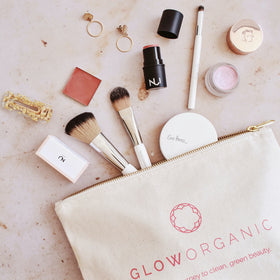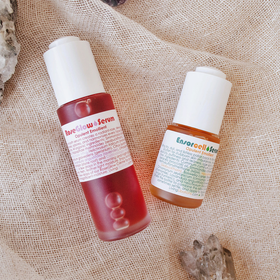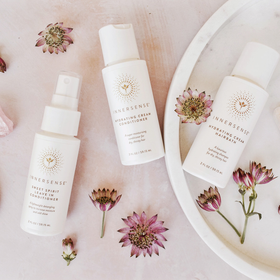Greenwashing
Greenwashing is when a company spends a significant amount of time and money trying to convince consumers that their products or services are ‘green’ through advertising and marketing in order to create more sales. Any company that is able to use eco friendly, safe, natural and organic practices when creating their products or service can potentially Greenwash their customers.
The information given by these companies is misleading to consumers. The companies do it because they know there is now more demand for natural, organic and eco friendly products on the market. Consumers want to know that what they are buying is good for not only themselves, but also not damaging to the environment.
Greenwashing can be carried out in the following forms as part of a companies marketing and advertising efforts:
- False Labeling.
Some companies may falsely label their products as being certified by an environmental organization, such as Soil Association or Ecocert.
- ‘Free From’ certain ingredients.
For example, some companies may claim their products are CFC free, leading people to believe they are buying a product that is ‘good’ for them and the environment. They are therefore taking advantage of the fact that not many people know what CFC is, and the fact that is a banned chemical as of 1998, and no companies are allowed to use it in their products. CFC’s (chlorofluorocarbons) are compounds of chemicals that have been discovered to destroy the earth’s ozone layer.
- Using the term ‘all natural’.
All natural, doesn’t necessarily mean it’s a product that is good for you. Aluminum, lead, mercury and formaldehyde are all ingredients that can be found in cosmetic products, and yes, they are naturally occurring, but can also be poisonous, cause cancer and be detrimental to our health. So using the term ‘all natural’ does not prove it is a ‘green’ product.
- Emphasizing a small ‘green’ attribute the company may have.
Many companies may use some eco friendly practices in the making and manufacturing of their products. These companies may play up that green attribute to mislead consumers into thinking they are all green, eco friendly, and their products are safe to use. When in fact the majority of the practices they undertake to make their products, and the ingredients they use, are not green.
- Using images and logos that would indicate they are ‘green’.
Pictures of trees, flowers, animals, and anything to do with nature in the companies marketing, would suggest to the consumer that they are eco-friendly. The companies know that most of the time this is a subconscious feeling that the customer gets, and are potentially more likely to buy from them if the customer is looking for a ‘green’ product.
Here is just small selection of companies who are guilty of Greenwashing:
Herbal Essences
The name of this brand alone could indicate the ingredients they use in their products are of natural origin. The images of leaves on the packaging and in their advertising campaigns, and their claim it contains 0% silicone, 0% parabens and 0% colourant in the product might suggest it is a natural product. However, when the ingredients list of the product is studied in detail, it shows it contains many harmful ingredients to the environment and us. These include Sodium Laureth Sulfate which can cause dry and itchy skin, as well as Cocamidopropyl Betaine, which is suspected to be an environmental toxin. Very misleading to consumers looking for eco friendly, all natural products.
Origins
Another strong example of Greenwashing - Origins use claims of being ‘powered by nature’, a vague term with no real meaning. This statement, however, leads consumers into believing that their products are natural. Their website is full of information attempting to prove their ‘green’ claims, such as giving information about their recycling programme, and their commitment to avoiding harmful ingredients like parabens, mineral oil and phthalates. Origins are not one of the worst offenders for using harmful ingredients in their products, but they are very good at hiding the potential risks of some ingredients that they do use. The ingredients list of their products is not available on their website, which is always a warning sign for anyone who is only looking to use natural and organic products.
The Body Shop
The Body Shop claim to be a brand that offers high quality, naturally inspired skincare, hair care and makeup that is ethically produced and sustainable. It is true that they run a fair trade programme and source their raw ingredients from small-scale farmers and traditional artisans. It is also true that they are trying to protect the planet by generating less waste and reducing their CO2 emissions.
However, The Body Shop does also include toxic ingredients in their products that are harmful to both the environment and us. The main toxic ingredient The Body Shop includes in their products is synthetic fragrances. Once exposed to the environment, synthetic fragrances from soaps and shampoos can cause long term damage to aquatic wildlife once they are washed down our drains. Synthetic perfume sprays also build up in the earth’s atmosphere, and contribute to pollution. Fragranced cosmetics are a particular concern to those with sensitive skin, as they can make skin irritated, dry and itchy.
There are many other companies guilty of Greenwashing consumers. Let us know your thoughts on the subject, and any other companies you would add to the list!







Leave a comment